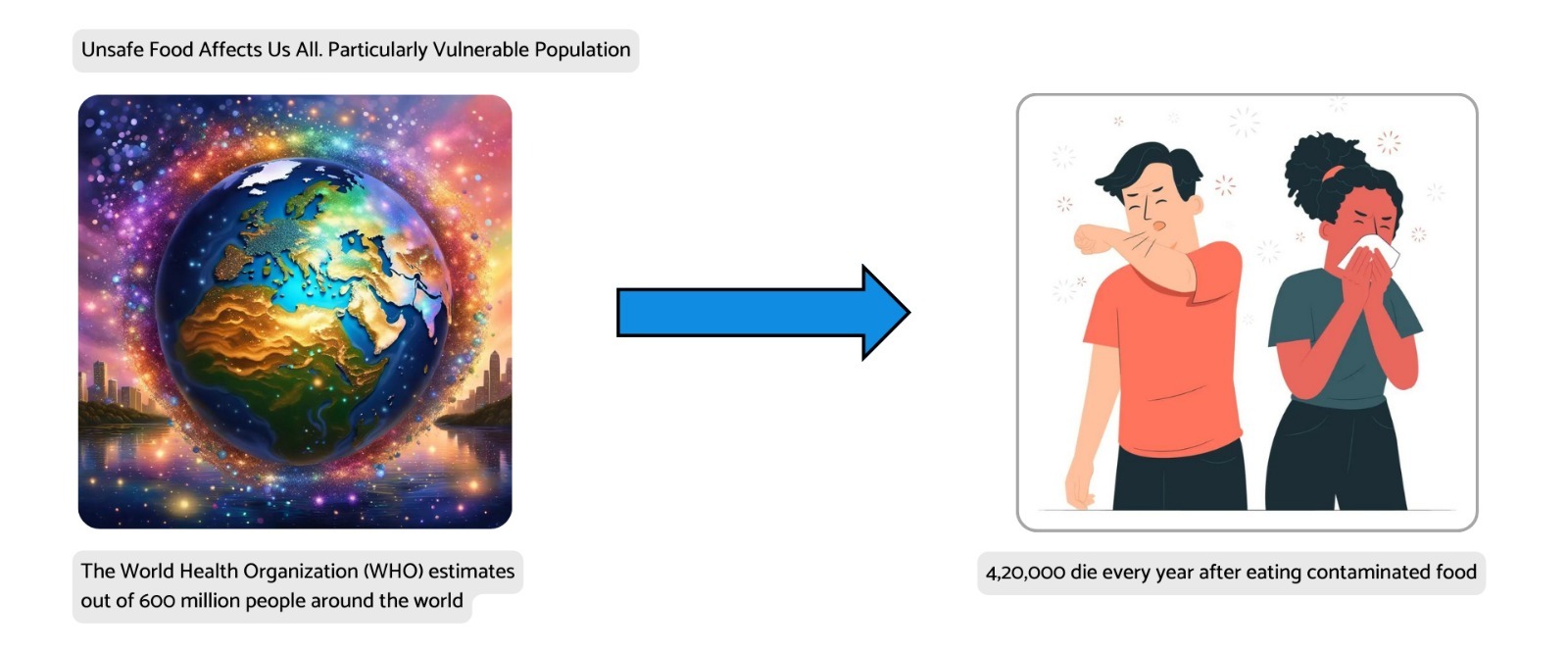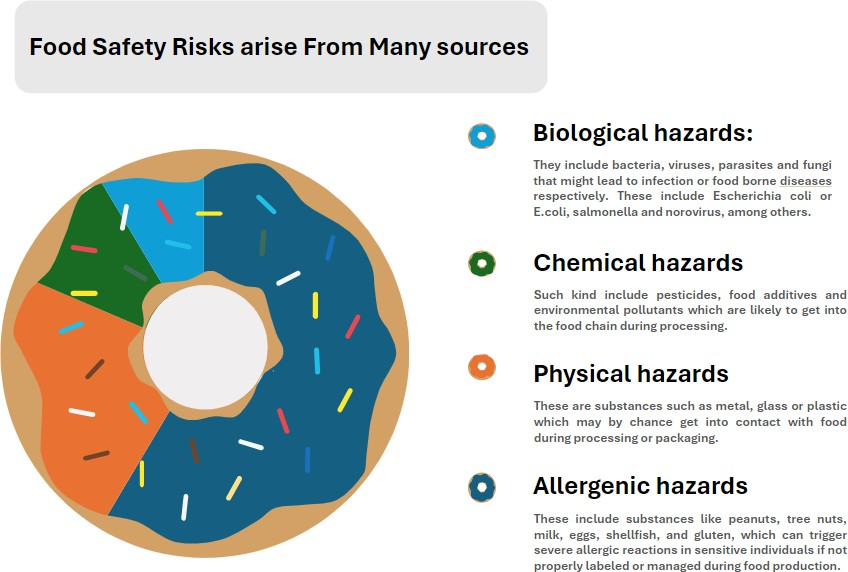Guarding Your Plate: How Aaseya's Inspection Solution Elevates Food Safety Standards?
Introduction To Why Food Safety Is Important?
Food safety is crucial for every country, as it involves practices that help reduce contamination and prevent food-related illnesses. Harmful bacteria and other microorganisms in food can cause foodborne diseases, ranging from mild stomach discomfort to severe illness or even death. According to the World Health Organization, 600 million people are affected by foodborne illnesses annually, with 420,000 fatalities. This highlights the critical need for maintaining strict hygiene standards in all stages of food production.
aHawkAI offers a practical way for businesses to tackle these challenges. By automating inspections, tracking compliance, and using real-time data and analytics, it helps food businesses proactively address risks and ensure the safety of their products at every step of the process.
Food Safety Risks Arise From Multiple Sources
Challenges In Ensuring Food Safety
Maintaining food safety standards requires the coordination of multiple stakeholders and activities. Some of the key challenges faced by food businesses in maintaining high food safety standards include
Compliance with Regulatory Standards: Food businesses must follow various rules from local, national, and international authorities, like the U.S. Food Safety Modernization Act (FSMA) and European Food Safety Authority (EFSA) guidelines. These regulations are often complicated and change over time, making it difficult for businesses to keep up and stay compliant.
Managing Contamination Risks: This can happen at any point, during the production process and or packaging. A lot of attention should be paid to the issue of risk assessment in order to prevent them from becoming more serious. It also assists in avoiding other possible safety concerns
Lack of Real-Time Data: Typically, traditional inspection approaches allow for only manually executed tasks. This results in a lack of visibility of the data, hence inability to address the potential safety threats as they emerge.
Resource Constraints: A lot of the small-scale food selling businesses fail to put in place sound food safety measures due to lack of capacity. When these systems are not effectively implemented, they will be likely exposed to safety threats, something that poses danger to their customers and business.
How aHawkAI Addresses Food Safety Concerns?
This is where aHawkAI stands to help by providing a sound solution that addresses the issue of food safety while at the same time improving operational effectiveness and adherence to the set standards. Key features include:
Automated Inspection Scheduling: The platform enables scheduling of practices to be made automatically depending on things such as the production cycles, storage conditions or regulatory rules. This helps to overcome the problem of systematic failure in inspection and timely inspections that are important elements in the management of food safety.
Real-Time Data Collection: Data is acquired on a real-time basis from different places such as production zones, warehouses and distribution centers. This capability makes it easier to identify safety threats when they occur, and this makes it easier to address them before they cause a contamination problem or any other problem.
Mobile Accessibility: Through the implementation of the mobile application, they are able to perform and finalize an inspection on site, irrespective of the area or different food facilities required, hence increasing the overall efficiency.
Optimized Routing: aHawkAI is useful for planning inspection routes so that an inspector can visit and inspect many locations and minimize travelling time and thus be more productive.
Intelligent Work Assignment: The system can schedule the tasks that need to be inspected and assign them to the relevant specialists, which makes the inspection to be done by the most qualified people in the organization hence increasing the accuracy of the inspection task.
Benefits of Using aHawkAI for Food Safety
Implementing the Aaseya Inspection Solution offers numerous benefits for food businesses, including:
Improved Food Safety: Among the benefits are, real-time data collection, and identification of risks by means of aHawkAI contribute to the company’s ability to meet high standards of safety and minimize the risks of foodborne illnesses.
Enhanced Compliance: Some compliance instruments help to maintain a business compliant with policies in the food safety industry to reduce non-compliance costs and fines.
Operational Efficiency: Both automation and systems integration decrease inspection time, cost, and. human errors.
Conclusion
aHawkAI takes the concept of food safety inspection to the next level as it increases the ease of traceability, minimizes instances of communicable diseases resulting from consumption of contaminated food and guarantees compliance. These added functions enhance the overall quality and effectiveness of the inspections making the promotion of food safety better for everyone.

